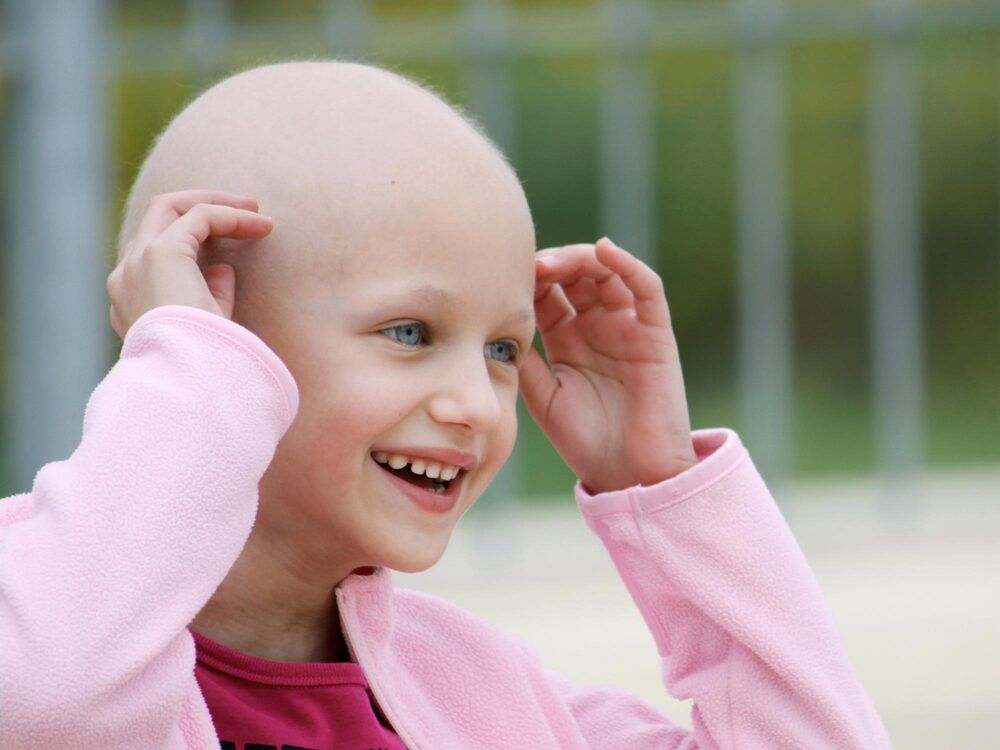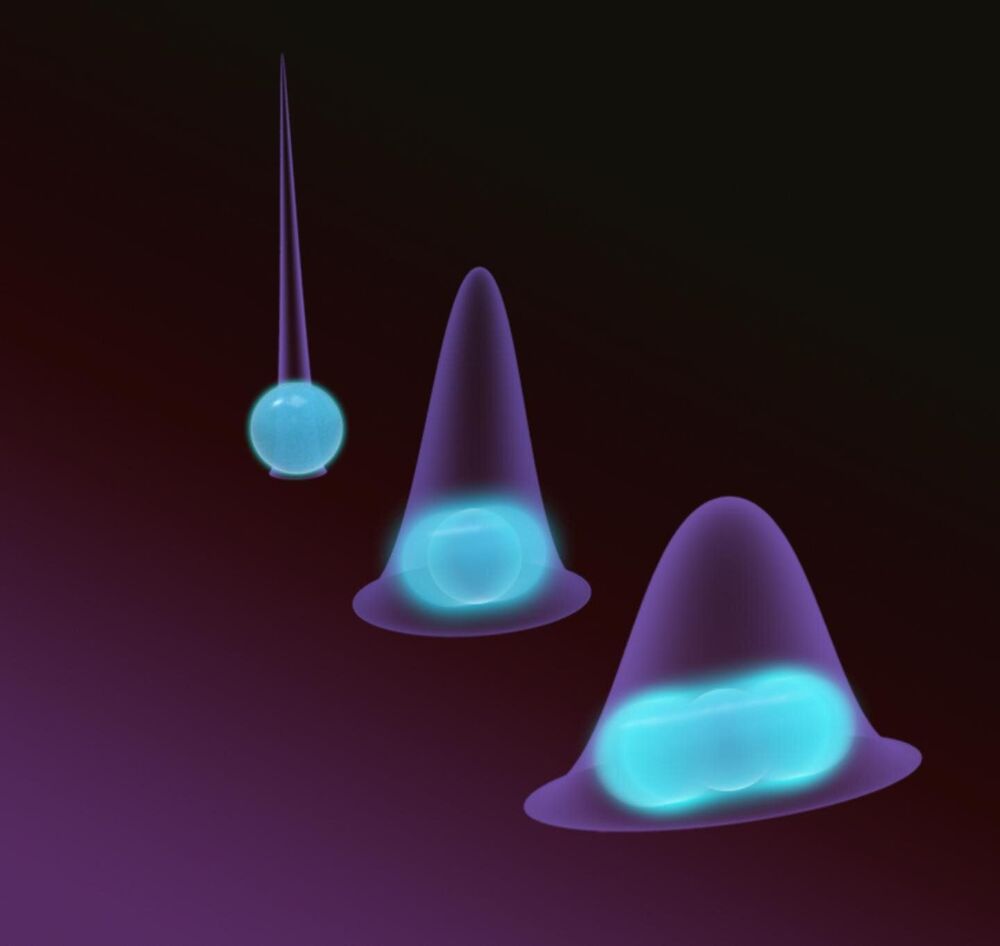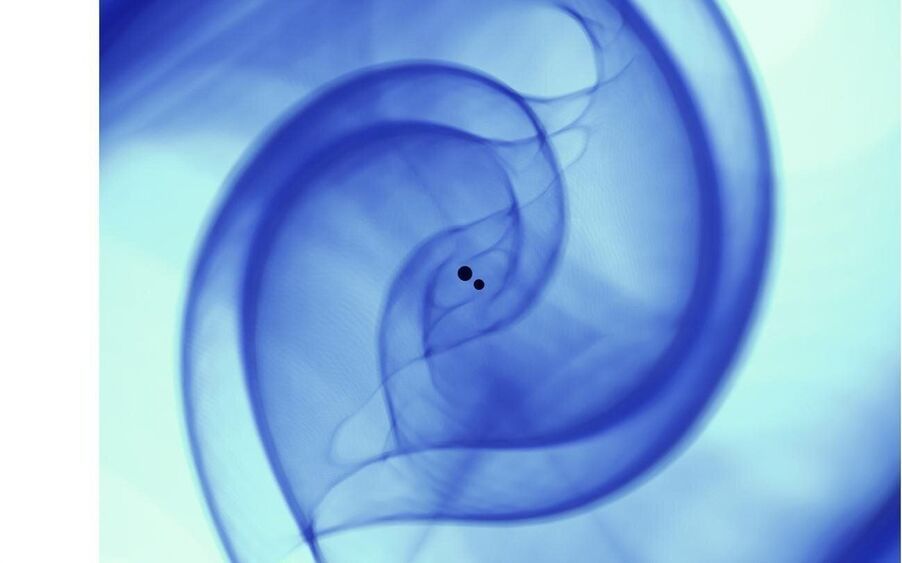At two hours post-treatment, pain freedom was achieved by 37% of participants with REN compared to 9% of the participants who took oral triptans and over the counter analgesic medications.
📏
How do the big tech giants compare to entire countries? Here’s how Apple, Microsoft, and Amazon’s market caps stack up against national GDP.
High-risk neuroblastoma is an aggressive childhood cancer with poor treatment outcomes. Despite intensive chemotherapy and radiotherapy, less than 50 percent of these children survive for five years. While the genetics of human neuroblastoma have been extensively studied, actionable therapeutics are limited.
Now researchers in the Feng lab at Boston University School of Medicine (BUSM), in collaboration with scientists in the Simon lab at the Perelman School of Medicine at the University of Pennsylvania (Penn), have not only discovered why this cancer is so aggressive but also reveal a promising therapeutic approach to treat these patients. These findings appear online in the journal Cancer Research, a journal of the American Association for Cancer Research.
“Our work pinpoints a targeted therapy for treating this group of at-risk patients, likely leading to improved survival,” said corresponding author Hui Feng, MD, PhD, associate professor of pharmacology and medicine at BUSM.
Scientists Intrigued
Posted in space
Possibilities.
Summary: Ketamine and exposure to 60-hertz flickering light show promise as a potentially new, non-invasive therapy to help rejuvenate the aging brain.
Source: IST Austria
Can you remember the smell of flowers in your grandmother’s garden or the tune your grandpa always used to whistle? Some childhood memories are seemingly ingrained into your brain. In fact, there are critical periods in which the brain learns and saves profound cognitive routines and memories. The structure responsible for saving them is called the perineuronal net.
This extracellular structure envelops certain neurons, thereby stabilizes existing connections – the synapses – between them and prevents new ones from forming. But what if we could remove the perineuronal net and restore the adaptability of a young brain? The neuroscientist Sandra Siegert and her research group at IST Austria now published two promising techniques to do so.
Imagine a dust particle in a storm cloud, and you can get an idea of a neutron’s insignificance compared to the magnitude of the molecule it inhabits.
But just as a dust mote might affect a cloud’s track, a neutron can influence the energy of its molecule despite being less than one-millionth its size. And now physicists at MIT and elsewhere have successfully measured a neutron’s tiny effect in a radioactive molecule.
The team has developed a new technique to produce and study short-lived radioactive molecules with neutron numbers they can precisely control. They hand-picked several isotopes of the same molecule, each with one more neutron than the next. When they measured each molecule’s energy, they were able to detect small, nearly imperceptible changes of the nuclear size, due to the effect of a single neutron.
Very recently, researchers led by Markus Aspelmeyer at the University of Vienna and Lukas Novotny at ETH Zurich cooled a glass nanoparticle into the quantum regime for the first time. To do this, the particle is deprived of its kinetic energy with the help of lasers. What remains are movements, so-called quantum fluctuations, which no longer follow the laws of classical physics but those of quantum physics. The glass sphere with which this has been achieved is significantly smaller than a grain of sand, but still consists of several hundred million atoms. In contrast to the microscopic world of photons and atoms, nanoparticles provide an insight into the quantum nature of macroscopic objects. In collaboration with experimental physicist Markus Aspelmeyer, a team of theoretical physicists led by Oriol Romero-Isart of the University of Innsbruck and the Institute of Quantum Optics and Quantum Information of the Austrian Academy of Sciences is now proposing a way to harness the quantum properties of nanoparticles for various applications.
Briefly delocalized
“While atoms in the motional ground state bounce around over distances larger than the size of the atom, the motion of macroscopic objects in the ground state is very, very small,” explain Talitha Weiss and Marc Roda-Llordes from the Innsbruck team. “The quantum fluctuations of nanoparticles are smaller than the diameter of an atom.” To take advantage of the quantum nature of nanoparticles, the wave function of the particles must be greatly expanded. In the Innsbruck quantum physicists’ scheme, nanoparticles are trapped in optical fields and cooled to the ground state. By rhythmically changing these fields, the particles now succeed in briefly delocalizing over exponentially larger distances. “Even the smallest perturbations may destroy the coherence of the particles, which is why by changing the optical potentials, we only briefly pull apart the wave function of the particles and then immediately compress it again,” explains Oriol Romero-Isart.
When gravitational waves were first detected in 2015 by the advanced Laser Interferometer Gravitational-Wave Observatory (LIGO), they sent a ripple through the scientific community, as they confirmed another of Einstein’s theories and marked the birth of gravitational wave astronomy. Five years later, numerous gravitational wave sources have been detected, including the first observation of two colliding neutron stars in gravitational and electromagnetic waves.
As LIGO and its international partners continue to upgrade their detectors’ sensitivity to gravitational waves, they will be able to probe a larger volume of the universe, thereby making the detection of gravitational wave sources a daily occurrence. This discovery deluge will launch the era of precision astronomy that takes into consideration extrasolar messenger phenomena, including electromagnetic radiation, gravitational waves, neutrinos and cosmic rays. Realizing this goal, however, will require a radical re-thinking of existing methods used to search for and find gravitational waves.
Recently, computational scientist and lead for translational artificial intelligence (AI) Eliu Huerta of the U.S. Department of Energy’s (DOE) Argonne National Laboratory, in conjunction with collaborators from Argonne, the University of Chicago, the University of Illinois at Urbana-Champaign, NVIDIA and IBM, has developed a new production-scale AI framework that allows for accelerated, scalable and reproducible detection of gravitational waves.
To create high-resolution, 3D images of tissues such as the brain, researchers often use two-photon microscopy, which involves aiming a high-intensity laser at the specimen to induce fluorescence excitation. However, scanning deep within the brain can be difficult because light scatters off of tissues as it goes deeper, making images blurry.
Two-photon imaging is also time-consuming, as it usually requires scanning individual pixels one at a time. A team of MIT and Harvard University researchers has now developed a modified version of two-photon imaging that can image deeper within tissue and perform the imaging much more quickly than what was previously possible.
This kind of imaging could allow scientists to more rapidly obtain high-resolution images of structures such as blood vessels and individual neurons within the brain, the researchers say.
If a virtual world has ever left you feeling nauseous or disorientated, you’re familiar with cybersickness, and you’re hardly alone. The intensity of virtual reality (VR)—whether that’s standing on the edge of a waterfall in Yosemite or engaging in tank combat with your friends—creates a stomach-churning challenge for 30–80% of users.
In a first-of-its kind study, researchers at the University of Maryland recorded VR users’ brain activity using electroencephalography (EEG) to better understand and work toward solutions to prevent cybersickness. The research was conducted by Eric Krokos, who received his Ph.D. in computer science in 2018, and Amitabh Varshney, a professor of computer science and dean of UMD’s College of Computer, Mathematical, and Natural Sciences.
Their study, “Quantifying VR cybersickness using EEG,” was recently published in the journal Virtual Reality.









